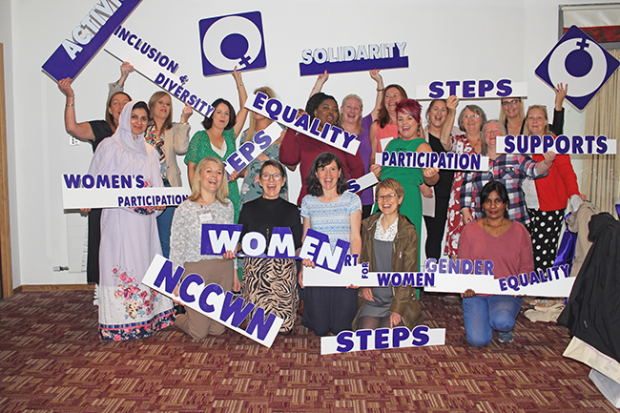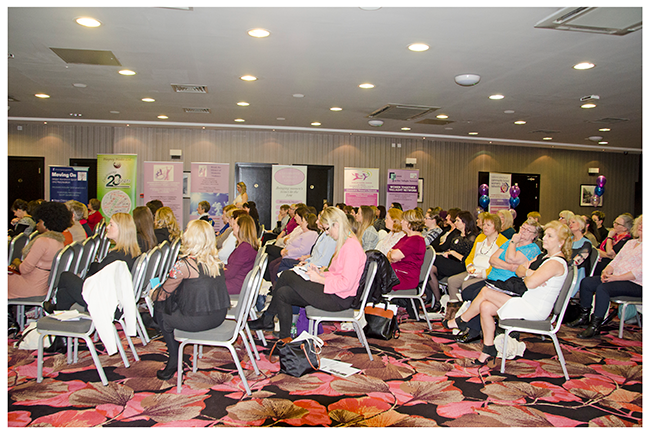27 January 2022 Edition
The voices of disadvantaged and marginalised women must be heard

NCCWN represents and works directly with women experiencing disadvantage through our 17 Grassroots Women’s Community Development Projects in Clare, Donegal, Dublin, Kerry, Leitrim, Limerick, Mayo, Monaghan, Roscommon, Waterford, Westmeath, and Wexford.
NCCWN addresses a wide diversity of issues impacting on the most disadvantaged women in Ireland. Our specific focus is support and capacity building for working class women, women without formal education, women living in poverty, older women, lone parents, women from the Traveller community, minority ethnic and migrant women, women with disabilities, lesbian and bisexual women, women living in rural areas, homeless women, and women experiencing domestic violence. NCCWN Projects recognise disadvantage in relation to women’s socio-economic circumstances. In addition, rural projects work with women who are often further disadvantaged through social isolation and lack of access to supports and services.
As a national organisation working specifically and directly with women from disadvantaged communities, NCCWN have demonstrated that we are an experienced and essential part of the infrastructure to support and advance disadvantaged women’s equality both locally and nationally, with a direct reach of over 36,000 women nationwide.
The focus of the NCCWN is on the empowerment of women and in building the capacity of women to contribute to benefitting their lives and the lives of their families and local communities. The main activities of NCCWN projects include:
- Women’s community development and community building
- Pre-development, community education and training
- Supporting and providing pathways to education and training
- Bringing a ‘gender lens’ to mainstream community and local development initiatives
- Identifying and providing needs-based services and supports, including childcare
- Challenging gender-based violence
- Promoting women’s equality, community leadership and empowerment
- Promoting women’s health and well-being
- Awareness -raising on gender equality and women’s human rights
- Highlighting and improving access to local services and supports
- Networking of women at local, regional and national levels.
Through our work with grassroots women across the country, it is evident that while gender inequalities impact on all women, women experiencing disadvantage are impacted disproportionately. Women living in poverty face barriers to health services, which in turn makes them more vulnerable to ill-health, both physical and mental, thus exacerbating health inequalities.
Furthermore, access to education is impacted by lack of finance, leading to multi-generational unemployment, poor health and poverty. While the management of wealth falls mainly to men, the burden of managing poverty is usually carried by women. Families headed by a lone parent, the majority of whom are women, are consistently and significantly more likely to be living in poverty than the general population. The income of women in paid employment continues to be significantly less than that of men. The concentration of disadvantaged women in part-time and low paid insecure work is of concern to NCCWN.
NCCWN research and experience confirms that the Covid-19 pandemic has not only further revealed the extent of inequality in Ireland, it has also exacerbated it. Women, particularly those who are marginalised and living in disadvantage, have been hit hard by the measures taken to control the virus.

• NCCWN International Women's Day event in Dublin March 2020. PICTURE: Maggie Doherty
Domestic violence, unemployment, and mental ill-health have all increased in Ireland during this time and the burden of care has fallen disproportionally on women. As the pandemic unfolded, domestic violence reports grew. Domestic and sexual violence remains a serious issue for women we work with which can be further intensified by social exclusion and poverty.
Women and children are all too often forced to stay in violent homes, as we have seen particularly during the Covid-19 restrictions. NCCWN support and refer women to the appropriate agencies at times of crisis in their lives.
Women have also been forced to cut hours at work or leave employment to take on more domestic and care duties. All this will reverberate for years to come in loss of income, mental wellbeing, and even wellbeing in old age due to pension inequalities that persist in Ireland.
NCCWN recognise that there have been positive impacts, including the ban on evictions and the pandemic payment to all who needed it, to name just a couple. As the country emerges from severe lockdowns, it will be more important than ever that any gains are retained and that the voice of disadvantaged and marginalised women is heard.
NCCWN are seeking to ensure women’s full and effective participation and equal opportunities for leadership at all levels of decision-making in the workplace, politics, and public life, particularly in relation to disadvantaged women. Our participation on key national structures supports women’s equality and raises awareness on disadvantaged women’s gender equality and human rights.
NCCWN works from a feminist community development, social inclusion, and anti-poverty approach and believes that in order to truly tackle persistent gender inequalities, policies and decision-making needs to focus on prevention – prevention of poverty, of violence, of all forms of disadvantage that women experience. NCCWN recognise the need for real and active consultation with women experiencing disadvantage; making visible and giving voice to women’s lived experiences; commitment to adequate funding of women’s community organisations.
Grassroots women have identified food poverty, heat poverty, access to public infrastructure, and the digital divide as key areas of concern. Solutions to the coming climate crisis, which will further significantly affect women, should be combined with poverty-alleviation activities.
Women’s role in community development is transformative in its very nature and has made visible the critical role that women play as the mainstay of local communities through their involvement in community development activities. The experience of the NCCWN projects is that investing in women’s empowerment and community development has lasting impacts on the social and economic fabric of society, in sustaining and building community cohesion and inclusion and the achievement of equality at a societal level.
The women’s community development movement has played a pivotal role in Ireland and many countries across the world in highlighting the factors that have shaped the lives and experiences of women living in poverty and disadvantage.
NCCWN will soon launch our strategic plan for 2022-2026 and a new name to reflect the challenges and work that we have been and will continue to do both on the ground and at representational level.
Our knowledge of what women face and understanding of how much of the disadvantage is structural and systematic, comes from work on the ground with grassroots women and through research enabled by our extensive reach and trust in the communities. Our aspiration in the coming years is to grow our community and reach, to unite more women to challenge the inequality and disadvantage that women experience in all forms.
NCCWN recognise that the current Covid-19 pandemic crisis has highlighted how the community and voluntary sector is crucial to the lives of many women in terms of combating disadvantage and isolation, social outlets, work, and community participation. In 2020, NCCWN carried out a survey throughout our 17 Projects’ areas to assess Covid-19 impacts and needs of women we work with. Findings from this survey, with 3,369 respondents, highlighted that women’s well-being and mental health will be one of the key areas of work for NCCWN local Projects going forward.
If you want to make contact with the NCCWN, Miriam Holt is the National Coordinator. Her email is:[email protected]



